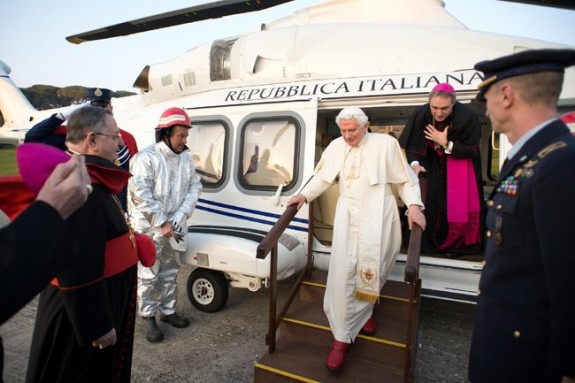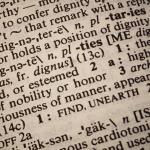An interesting overview, from a variety of voices (including some cardinals) from the New York Times:
The resignation of Pope Benedict XVI, who last week renounced what for nearly 600 years has been a lifelong office, will reverberate for years to come and could change the nature of the modern papacy, starting with the election of his successor.
Vatican experts and some church leaders said that Benedict’s decision holds the potential to set limits for future popes, to make them more subject to pressure from critics and to feed the perception that they are not just spiritual leaders of the world’s 1.2 billion Roman Catholics but chief executives managing the vast multinational conglomerate that is the church, with its franchises around the globe and headquarters in the Vatican state.
“If Jack Welch looked like this wonderful 85-year-old gentleman and he stepped down, wouldn’t you say, ‘Bravo, Jack?’ ” said Cardinal Edward M. Egan, the retired archbishop of New York, who called Benedict’s decision the sensible and logical thing to do. He was one of many cardinals to rally publicly around Benedict’s choice, a radical step for an otherwise deeply conservative theologian…
…“The precedent has been set,” Cardinal Wilfrid F. Napier, the archbishop of Durban, South Africa, said in an interview on Friday. “If there were a pope to come into the situation that the good of the church requires some action and that action requires his resignation, he would look back at what Benedict did and say, ‘It’s an option I must consider, for the benefit of the church.’ ” He emphasized that in Benedict’s case, health was the reason.
Such issues have never been on the table during the modern papacy. Not everyone is pleased about it, and some worry about a destabilizing effect.
In interviews last week, several cardinals referred to the possibility that papal critics could be emboldened now that resignation is on the table.
“What I would not like to see happen is that a pope would feel that there’s almost a polling process — ‘How’s this going over? Am I effective?’ ” said Cardinal Timothy M. Dolan, the archbishop of New York. “That would not be good for the church.”
…Some cardinals are said to favor lifetime appointments and will seek a promise that the next pope will not step down, the Italian newspaper Corriere della Sera reported Friday. The very suggestion indicates that Benedict’s decision has divided church leaders.
But Cardinal Napier of South Africa rejected the possibility that fellow eminences might seek such a commitment. To do so would be an implicit criticism of Benedict’s decision, he said — very bad form in papal circles. He also emphasized that he believed that Benedict’s decision was motivated by his condition, not by the turbulence that dogged his papacy.
Clerical sexual scandals around the world and what critics see as the church’s inadequate response have roiled his tenure, along with allegations of widespread corruption and mismanagement in the Vatican. Benedict had also angered Jews, Muslims and Anglicans with his remarks.
One of the fundamentals of conclave handicapping is the question of age, and the new paradigm cuts both ways.
“I can see the conclave deciding to elect an older man, realizing he would not have to carry this burden into his 90s,” Cardinal Sean P. O’Malley, the archbishop of Boston, told reporters on Thursday. “If he felt incapacitated, he would feel permission to resign.”
















